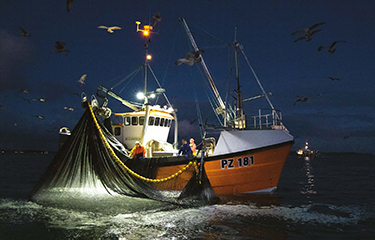A number of organizations released new data on the 15th annual World Ocean Day on 8 June that highlights consumer desire for greater ocean protection.
A new poll conducted by Morning Consult for the Walton Family Foundation targeted U.S. consumers, and found the majority of Americans think ocean health is important.
The poll, which sampled over 2,000 adults via online interviews – with a margin of error of roughly 2 percentage points – found 83 percent of adults in the U.S. think the health of the ocean and its ability to provide seafood is important to them personally. Of that total, 54 percent rated it “very important.” Two in three consumers, or 68 percent, added they are worried climate change is having a negative impact on the health of the ocean and fish populations.
“Healthy oceans and healthy fish are key to feeding a growing global population,” Walton Family Foundation Environment Program Director Moira Mcdonald said in a release. “More than a billion people rely on seafood as their primary food source. To protect fish and the oceans, we need to use science that is responsive to climate change.”
The survey found 73 percent of American consumers felt climate change makes protecting the seafood supply more urgent, and 71 percent felt climate change makes it more urgent to protect the oceans in general.
Four in five consumers, or 82 percent of respondents, agreed with the statement “we have a responsibility to ensure a steady supply of sustainable seafood for future generations.”
The survey also asked consumers about seafood buying habits and preferences, finding 69 percent of consumers said the country where processing occurs is an important consideration in their purchasing decisions, and 75 percent of recent seafood purchasers said the country of processing was important to them. Country of origin was also important to the majority of consumers, with 68 percent saying they considered it overall, and 75 percent of recent purchasers said country of origin is important.
How workers are treated is also important to consumers, the poll found, with 76 percent of consumers agreeing with the statement “we need to pay more attention to how workers are treated in the production of seafood.” A further 83 percent said there should be a balance between protecting the oceans and protecting fishers' ability to make a living.
“Adaptation and resilience are central to all environmental efforts. Work in the oceans and fisheries is no different,” Mcdonald said. “Climate-resilient fisheries strengthen food security and the environment. We need leaders to consider both things at once.”
However, the poll found beyond sustainability the number-one concern for those polled – 90 percent of consumers – was price.
Separately, a different survey performed by Fair Seas asked similar questions of 1,000 people in Ireland and found 77 percent of respondents in the country felt restoring the seas and ocean will protect marine biodiversity and help tackle climate change. Almost as many people, or 74 percent, also said that protecting and restoring marine wildlife populations and their habitats must be a priority for the government.
“It’s amazing to see that most people care for, value, and respect our seas and ocean, with the majority of people saying in repeated surveys that they want to see more and improved protections for Ireland’s marine habitats and species,” Fair Seas Campaign Manager Aoife O’Mahony said.
The Fair Seas survey was intentionally performed in time for the Fair Seas World Ocean Day Conference on 7 June, 2023. The event brought Irish stakeholders and officials to Cork, Ireland, to discuss the creation of additional marine protected areas (MPAs) in the country.
“Ireland’s new marine protected area legislation is due before the Oireachtas in the coming weeks. This will allow Ireland to meet its national and international target of protecting at least 30 percent of our waters by 2030,” O’Mahony said. “This legislation must not only detail how we effectively manage any new MPAs in the future, but how we better implement protected sites that currently exist. It’s only by having effective MPAs and using all our sea and ocean areas sustainably, that we can address the biodiversity and climate emergency.”
The surveys showcasing consumers’ concerns regarding ocean health coincided with new data from the Marine Stewardship Council showing that increased ocean sustainability could benefit more than just marine life as ending overfishing could provide nutrition for “millions of additional people,” according to the organization.
Figures published in a new MSC briefing indicate that if all fisheries around the world were maintained at a more sustainable level, harvesters could pull in 16 million metric tons (MT) of additional seafood.
“This additional catch, together with the 96 million [MT] of wild seafood catch currently projected for 2030, could prevent iron deficiencies in four million people and vitamin B12 deficiencies in 18 million people,” the MSC said.
The MSC also said that 38 million people globally are missing out on healthy levels of omega-3 fatty acids – a nutrient that multiple studies have shown has numerous health benefits.
“If more global fisheries are managed sustainably, we can provide even more of the nutrition needed to feed a growing population. But this requires urgent action, as a third of the world’s fish stocks are now under threat,” MSC Chief Executive Rupert Howes said in a release. “If we manage to tackle the challenge of overfishing, then we help address food insecurity and prevent ill health. Consumers, fishers, and businesses are already supporting this shift. But we need governments to do more, ensuring the urgent transformation of our food systems globally.”
Photo courtesy of Nigel Millard/MSC







